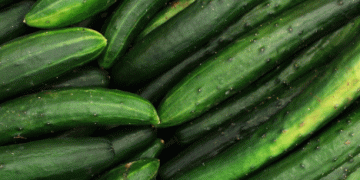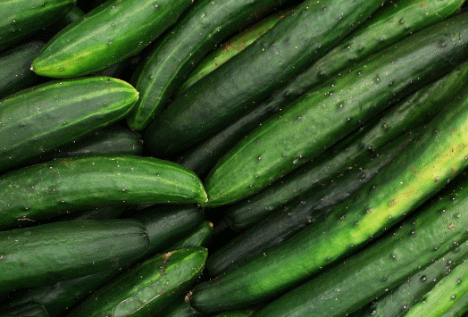Spain’s cucumber imports have seen a dramatic increase between January and October 2024, totaling 13.37 million kilograms. This figure marks a striking 158.5% rise compared to the same period in 2020, according to data from Hortoinfo and Estacom, the statistical service of the Spanish Tax Agency. The total value of these imports amounted to 17.26 million EUR, with an average price of 1.29 EUR per kilogram. The surge in demand underscores the importance of international trade in Spain’s agricultural sector, as domestic production struggles to meet rising consumer needs.
Morocco has firmly established itself as the dominant supplier of cucumbers to Spain, accounting for an overwhelming 75.61% of the total imports. Between January and October 2024, Spain imported 10.11 million kilograms of cucumbers from Morocco, valued at 13.09 million EUR. These figures highlight Morocco’s strong position in Spain’s fresh produce supply chain, offering a consistent and competitive price of 1.29 EUR per kilogram. Morocco’s proximity and established trade agreements with Spain make it an ideal supplier, as the country can deliver cucumbers at scale and at competitive prices.
Portugal ranks second, but far behind Morocco, supplying 15.76% of Spain’s total cucumber imports with 2.11 million kilograms, valued at 2.3 million EUR. The average price of cucumbers from Portugal was 1.09 EUR per kilogram, making it a more affordable option compared to Morocco, but still not enough to challenge Morocco’s dominance. The remaining imports came from various European countries, with the Netherlands completing the top 10 cucumber suppliers. Between January and October 2024, the Netherlands sent just 52,616 kilograms of cucumbers to Spain, with a value of 65,311 EUR and an average price of 1.24 EUR per kilogram.
The growth in cucumber imports can be attributed to several factors. The increasing demand for fresh vegetables in Spain, particularly cucumbers, is a significant driver. The Spanish agricultural sector, despite its advancements, faces limitations in domestic production during the colder months, making imports essential. Additionally, trade agreements with neighboring countries like Morocco and Portugal provide a steady supply of cucumbers at competitive prices, contributing to the sharp increase in import volumes.
The sharp rise in Spain’s cucumber imports from January to October 2024, particularly from Morocco, underscores the country’s growing reliance on international markets to meet consumer demand. With Morocco leading the charge in both volume and value, and Portugal holding a distant second, the trend highlights the increasing role of global trade in Spain’s agricultural sector. Moving forward, Spain’s import strategies may continue to prioritize competitive suppliers from North Africa and Europe to ensure a consistent and affordable supply of fresh cucumbers.































